“Sometimes we speak up and sometimes we stay silent. That decision is ours alone to make.”
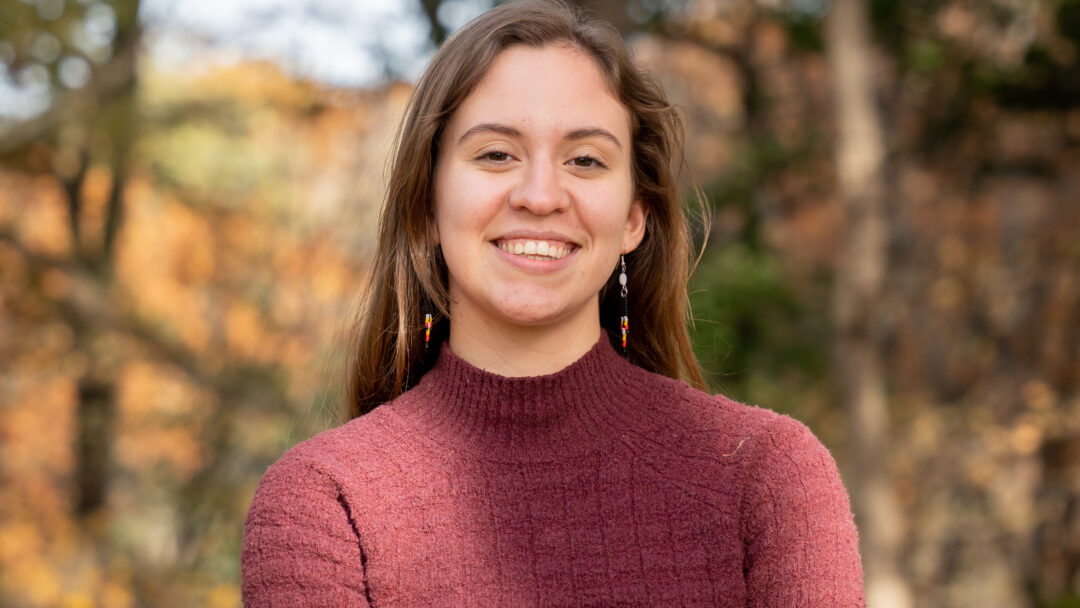
There are days when Darci Debassige decides to be a McMaster student who just happens to be Indigenous.
And there times when Darci chooses to be an Indigenous student from M’Chigeeng First Nation who goes to Mac – the 3rd annual Indigenous Research Day was one of those times.
Previewing her fourth-year undergraduate thesis to a full house was exhilarating and terrifying in equal measure. “I’ve spoken in front of lots of audiences before and hosted conferences. But I was especially nervous because my research is very important to me, and I was being watched by the most important people in my life – people I respect and look up to a lot.”
Darci’s chronicling the challenges faced by Indigenous students and residents in the medical education system. “They’re constantly navigating between two very different worlds. And Indigenous people have a complicated history with anyone in a position of power, like physicians. We know all too well how power can be used and abused against us.”
She presented her research in the form of a story to incorporate Indigenous methods of knowledge sharing. Storytelling is also a way for publicly telling and hearing difficult and painful narratives. “When I look at my presentation as a way of telling the stories of students and residents, I’m immensely happy and proud of how it went.”
That research has helped confirm what’s next once Darci graduates this spring from Psychology, Neuroscience & Behavior – she plans to be a teacher just like her parents and grandparents. “When people ask why I’m going to teacher’s college instead of medical school, I tell them about my research findings. I have lots of respect for what those Indigenous students and residents are doing. I’ve chosen a different path.”
It’s a noble and needed path – Darci quotes the late Hon. Murray Sinclair who once said “education got us into this mess and education will get us out of it.” She wants to help make that happen.
Along with presenting at Indigenous Research Day, Darci’s involved with the student-run Indigenous Health Movement and Indiginerds, an eight-week intensive research program hosted by the McMaster Indigenous Research Institute. She’s also on the search committee for McMaster’s first Vice-Provost, Indigenous and is one of the regulars at the weekly beading nights run by McMaster Indigenous Student Services.
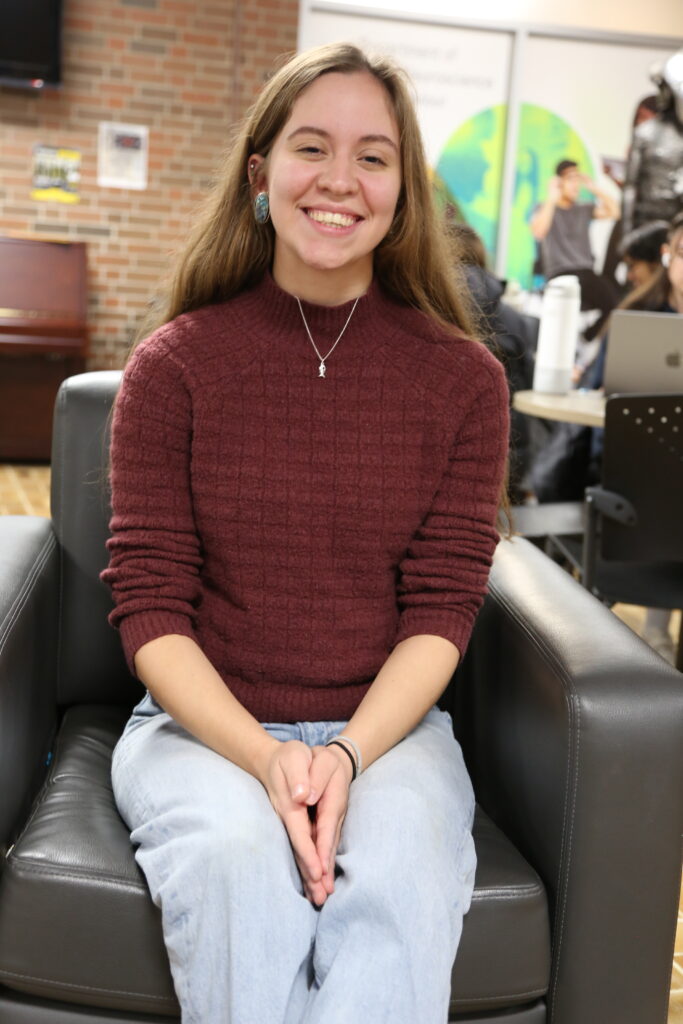 Being in the company of Indigenous students is one cure for the homesick blues. Moving south to McMaster after a lifetime spent on Manitoulin Island in Northern Ontario was a rough adjustment. Darci is a long way from home with no quick and easy way back – the ferry from Tobermory to the island stops running soon after the start of the fall term which means a seven-hour drive along the eastern shore of Lake Huron. “I should’ve checked the ferry schedule before deciding where to go to university,” says Darci, who adds she still would’ve chosen her father and uncle’s alma mater. Having Cootes Paradise in McMaster’s backyard also factored into her decision – it helps remind her of home.
Being in the company of Indigenous students is one cure for the homesick blues. Moving south to McMaster after a lifetime spent on Manitoulin Island in Northern Ontario was a rough adjustment. Darci is a long way from home with no quick and easy way back – the ferry from Tobermory to the island stops running soon after the start of the fall term which means a seven-hour drive along the eastern shore of Lake Huron. “I should’ve checked the ferry schedule before deciding where to go to university,” says Darci, who adds she still would’ve chosen her father and uncle’s alma mater. Having Cootes Paradise in McMaster’s backyard also factored into her decision – it helps remind her of home.
“I’m homesick all the time. Missing out on activities like moose hunting and ice fishing can hit hard. My Indigenous friends understand exactly what it means to miss our families and our communities.”
She’s counting the days until the epic party next June when her extended family will celebrate Darci’s graduation from Mac, her kid sister’s graduation from high school and her mother’s retirement.
That’s not something Darci talks about with many of her non-Indigenous classmates. She says switching back to being a McMaster student who happens to be Indigenous is one way to avoid paying “the minority tax”.
“When some people find out you’re Indigenous, you become their go-to expert on everything from land acknowledgements, the Indian Act, all 94 Calls to Action from the National Truth and Reconciliation Commission, and what it’s like to live on a reserve. It can get exhausting.”
Sometimes, a 20-year-old student just wants to go to class, study, have fun and try to figure life out.
Darci feels no obligation to pay the minority tax and answer every question. “It’s not my job – or the job of any Indigenous student – to teach you this. Go learn it for yourself. We owe you nothing.”
She understands why there are so many questions – she’s surprised at how many students have yet to meet an Indigenous person or make the half-hour drive from campus to Six Nations of the Grand River (she was there this fall for a beading conference and says the Grand River is ideal for canoeing and curbing homesickness).
Darci says Indigenous and non-Indigenous people have no choice but to live, learn and work side-by-side on Manitoulin Island – the world’s largest freshwater island is roughly twice the size of Hamilton and is home to six Anishinaabek reserves, eight townships and two incorporated towns.
Along with not wanting to constantly pay the minority tax, there’s another reason Indigenous students choose to stay silent. “Silence is a way of staying safe. There’s always a risk when speaking out.” It’s a lesson Darci relearned during office hours early in her undergrad.
She was in a lecture where the professor downplayed the mental health issues of Indigenous people. There was no mention of post-traumatic stress disorder, internalized racism, chronic suicidality and other mental health issues that plague Indigenous communities. That didn’t sit right with Darci. Yet she didn’t challenge the professor in class – no one knew she was Indigenous. “You usually don’t know unless I’m wearing my beaded earrings.”
Darci went to office hours hoping to have a follow-up conversation with the professor. Those plans went off the rails when the professor said the abuse of children at residential schools was comparable to the experiences of students at British boarding schools. It was a comment that went far beyond not sitting right with Darci – it left her stunned.
There was much she could’ve said that should not have needed to be said. She could’ve pointed out that boarding schools weren’t created for the sole purpose of educating the British out of the child and destroying their culture. That boarding schools weren’t underfunded and overcrowded by design. That children at boarding schools weren’t abducted from their parents who were imprisoned if they tried to hide them or resist. Or that the bodies of hundreds of abused, neglected and starved children weren’t buried in unmarked graves behind boarding schools.
Instead, Darci stayed silent and cut the meeting short. That was not the time or place for a teenager to pay such a hard and heavy tax with a person who had the power to set her final grade or call her out in class.
Darci says that conversation has fortunately been an outlier during her time at McMaster. Most of the people she’s met genuinely want to have meaningful conversations so they can better understand Indigenous realities and do their part in cleaning up the mess made by education and moving down the path to healing and reconciliation in Canada.
“It’s a topic that many people are genuinely interested in right now. Indigenous people must choose what we do with that attention. Sometimes we speak up and sometimes we stay silent. That decision is ours alone to make.”
Darci made the decision to share her story. She kicked off the interview by leaning back in her chair and saying “go ahead and ask my anything. I’ll answer whatever you want to know. Nothing’s off limits.”
And for the next hour, she was a proud Indigenous student with a gift for storytelling and a passion and the patience for a lifetime of teaching.
Student experience, Student leadership, Students, Undergrad researchRelated News
News Listing
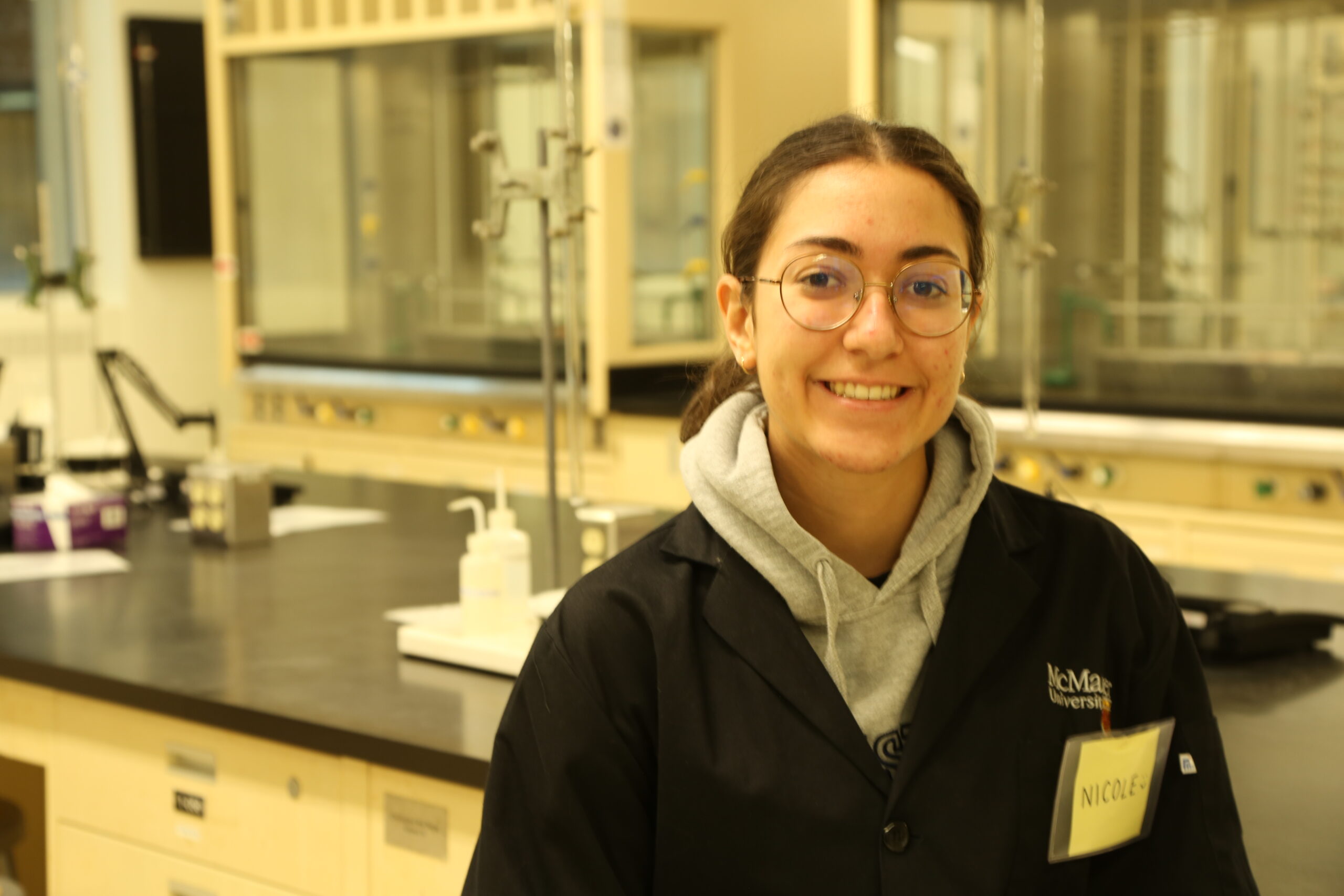
A research co-op was the payoff for undergrad who constantly put up her hand in class
Co-op, Students
4 days ago
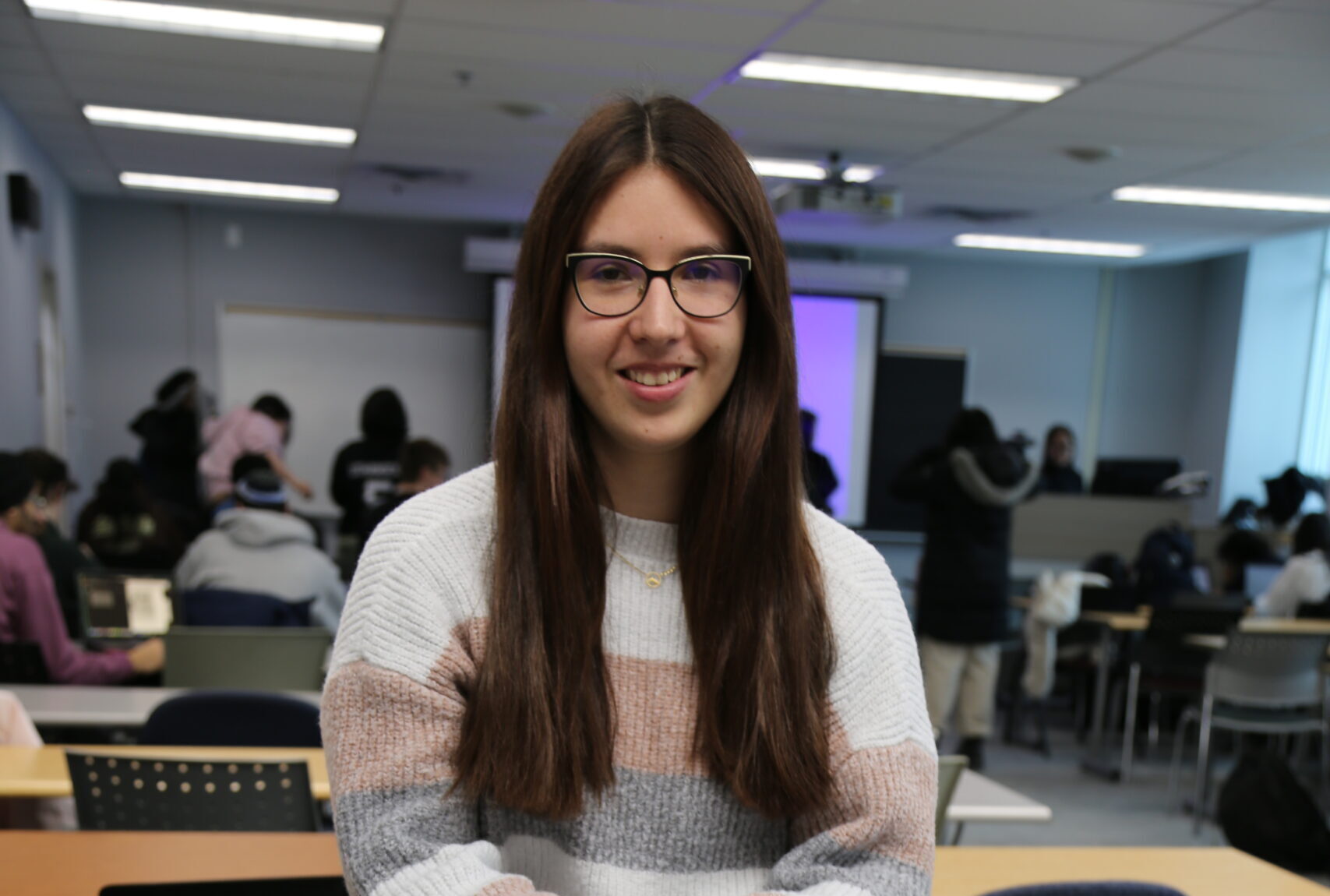
Life Sciences student launches McMaster Teaching Assistant Volunteer program for Hamilton schools
Outreach, Students
February 4, 2025
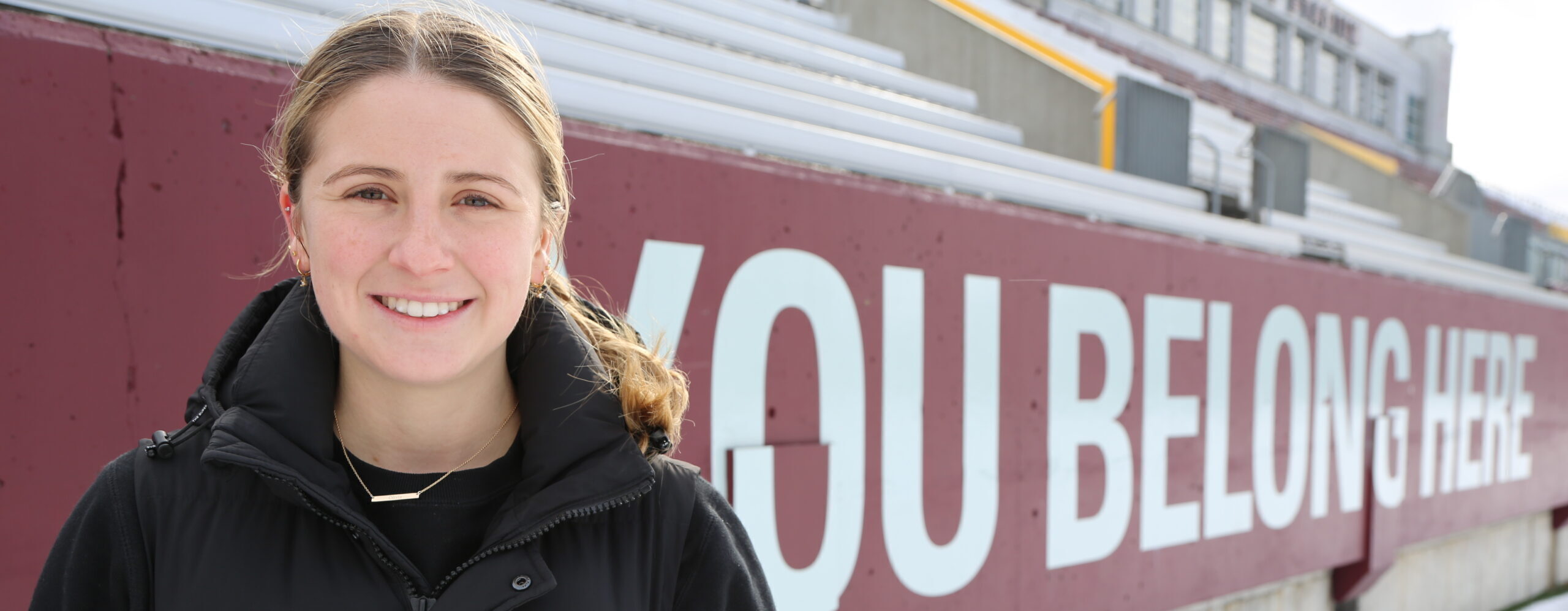
A remarkable four-year run on and off the field for kinesiology student
Outreach, Students
February 3, 2025
